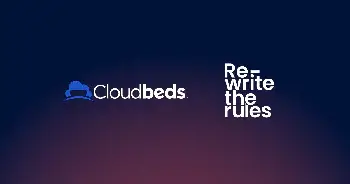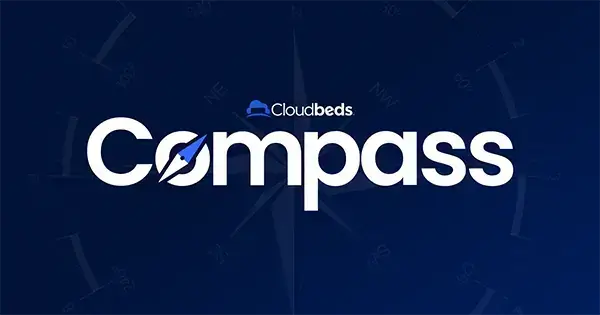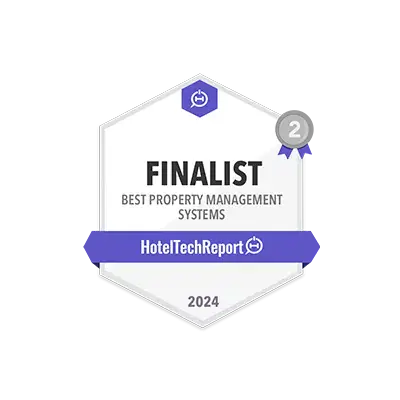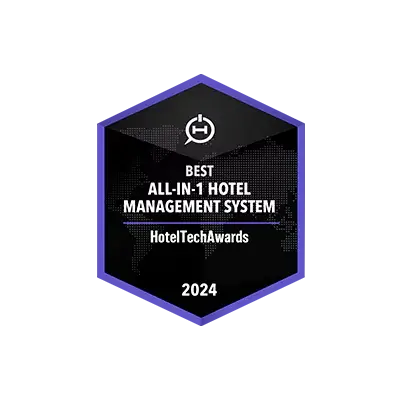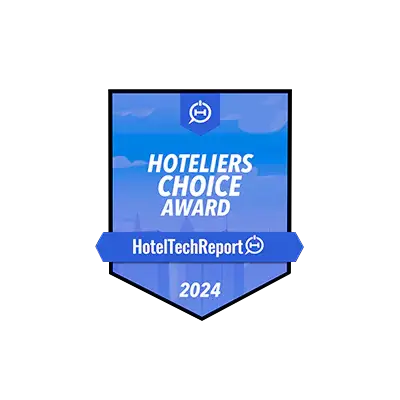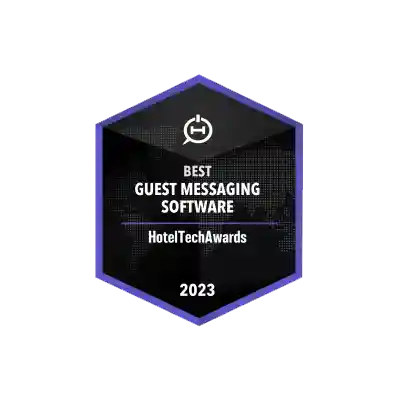
By Cloudbeds
Chargebacks are an unfortunate reality within the travel industry. Fighting chargebacks can be a tedious and time-consuming process that usually comes with additional fees (and a major headache).
What can you do to reduce hotel chargebacks? How can your hotel detect and deal with chargebacks or fraudulent transactions?
Since chargebacks are a common problem for hoteliers and hosts, here we’ll review:
- What a hotel chargeback is, and how it’s different from a refund
- What the typical chargeback rate is
- Four common reasons why chargebacks happen
- How your hotel can mitigate chargebacks
- What “friendly fraud” is – and how you can protect yourself from it
What is a chargeback?
A chargeback begins when a traveler or hotel guest files a dispute with their card company or issuing bank. Any number of reasons could trigger the dispute; for example, their card was charged twice, or the card processor identified fraudulent charges made with the card in question.
The card issuer uses that information to determine the specific reason code, such as “card-not-present” or “duplicate processing.”
Regardless of the reason, after the dispute has been filed, the cardholder’s issuing bank and the merchant’s acquiring bank investigate the claim’s validity. Until the chargeback claim is resolved, the guest will get a credit from the bank for the charge.
However, suppose the issuing and the acquiring banks can’t resolve the dispute. In that case, the acquiring bank will send a chargeback notification to the merchant, who can accept or fight the decision. If the merchant decides to fight the chargeback, they’ll have to resubmit the charge to the acquiring bank, along with any evidence to support their claim. The customer may also be asked to provide evidence to support their claim. The issuing bank will then review and decide based on the evidence.
What does this mean for you as a hotelier?
When the bank or the credit card company initiates a chargeback to your property, you won’t receive funds for the guest’s transaction while the dispute is investigated. Even if the issuing bank rules in favor of you, the other party can request that the case be further reviewed, causing the claim to enter pre-arbitration.
While the claim is in the pre-arbitration or arbitration phase, it can take several months to be resolved. Worse still, if you lose the dispute, you’ll also lose the funds and several fees charged by the banks for handling the chargeback process.
It’s important to note that a chargeback is NOT a refund – a chargeback is initiated by the credit or debit card company in response to a consumer complaint. By contrast, a refund is initiated by you, the merchant, in response to a complaint from the customer.
A chargeback can severely harm your hotel’s reputation and dent your profitability. If you have too many of them, it’s even possible that you’ll lose the ability to accept credit card payments completely. Chargebacks tend to favor customers and are therefore costly to the hotel industry, which the chargeback rate reflects.
What is the chargeback fee & how is it calculated?
A “chargeback fee” is a special fee imposed by the bank. This fee is charged to recover incurred costs while they handle the chargeback dispute. The bank calculates the rate by adding the incurred costs, additional fees related to managing the consumer chargebacks, and any customer disputes associated with their account.
According to Verifi, the typical chargeback fee is between $20 and $100, depending on the number of chargebacks. However, keep in mind that there are also hidden costs to chargebacks. If a merchant loses a dispute, they can incur a transaction fee, penalty fees, and operational costs.
With costs related to operations and customer acquisition, businesses can often lose 2-3 times the original transaction amount. According to research from Today’s Hotelier, for every dollar of losses, chargebacks, fees, and merchandise replacement accounts for $2.40. Essentially, even a $50 chargeback can become $125 with all the extra fees.
In short, chargebacks are costly. But why do they happen?
4 common types of hotel chargebacks
Before the cardholder can file a chargeback, they must give a reason to their card provider. The card provider then processes this information and determines the specific cause.
James Lemon, Global Lead of Travel, Transport, and Leisure at Stripe, and Chad Brubaker, Senior Director of Product at Cloudbeds, discuss different types of fraud and how a surprising amount isn’t actually malicious (plus how hoteliers can prevent “friendly fraud” from occurring).
Some common reasons for a hotel chargeback include:
#1: Credit not processed
A “credit not processed” means that the guest states a refund was due to them; however, it was never issued. This could be because the refund request was overlooked or the guest’s refund request did not abide by your cancellation or refund policy.
#2: Credit card fraud & “friendly fraud”
A credit card fraud claim occurs when the named cardholder states they did not authorize a transaction or did not participate in a card transaction. Usually, this is because they had a stolen card that another person used without their permission.
Friendly fraud is a term used to describe when a cardholder commits fraud by asking for a chargeback after they’ve authorized a transaction. Typically, the fraudulent chargeback is associated with people who don’t know or understand what they agreed to pay for, but it can also happen when the person doesn’t remember the charge or didn’t like the service. Either way, the “fraudster” is the valid card owner.
In the lodging and hotel business, some common friendly fraud scenarios occur when a guest:
- Forgot they ordered room service
- Ate or drank something from the minibar by mistake
- Is confused about your cancellation or refund policy
- Booked a trip months in advance and didn’t recognize the charge on their card once it was processed
Friendly fraud can be hard to dispute. A common theme is that the guest “forgets” or is “confused” about something, such as your hotel’s cancellation policy. According to Chargebacks911.com, 49% of friendly fraud instances were caused by simple misunderstandings, and often, the cardholder didn’t even know they filed a chargeback.
Read more on proactive ways to combat hotel credit card fraud.
#3: Not as described or product unacceptable
This type of chargeback happens when the guest has an issue with their stay. For example, the stay did not meet expectations, or the advertisement of the room was not an accurate representation of the actual room or property.
#4: Services not rendered
If you’ve received a “services not rendered” claim, it means the guest stated your property charged their card; however, they did not stay at the property.
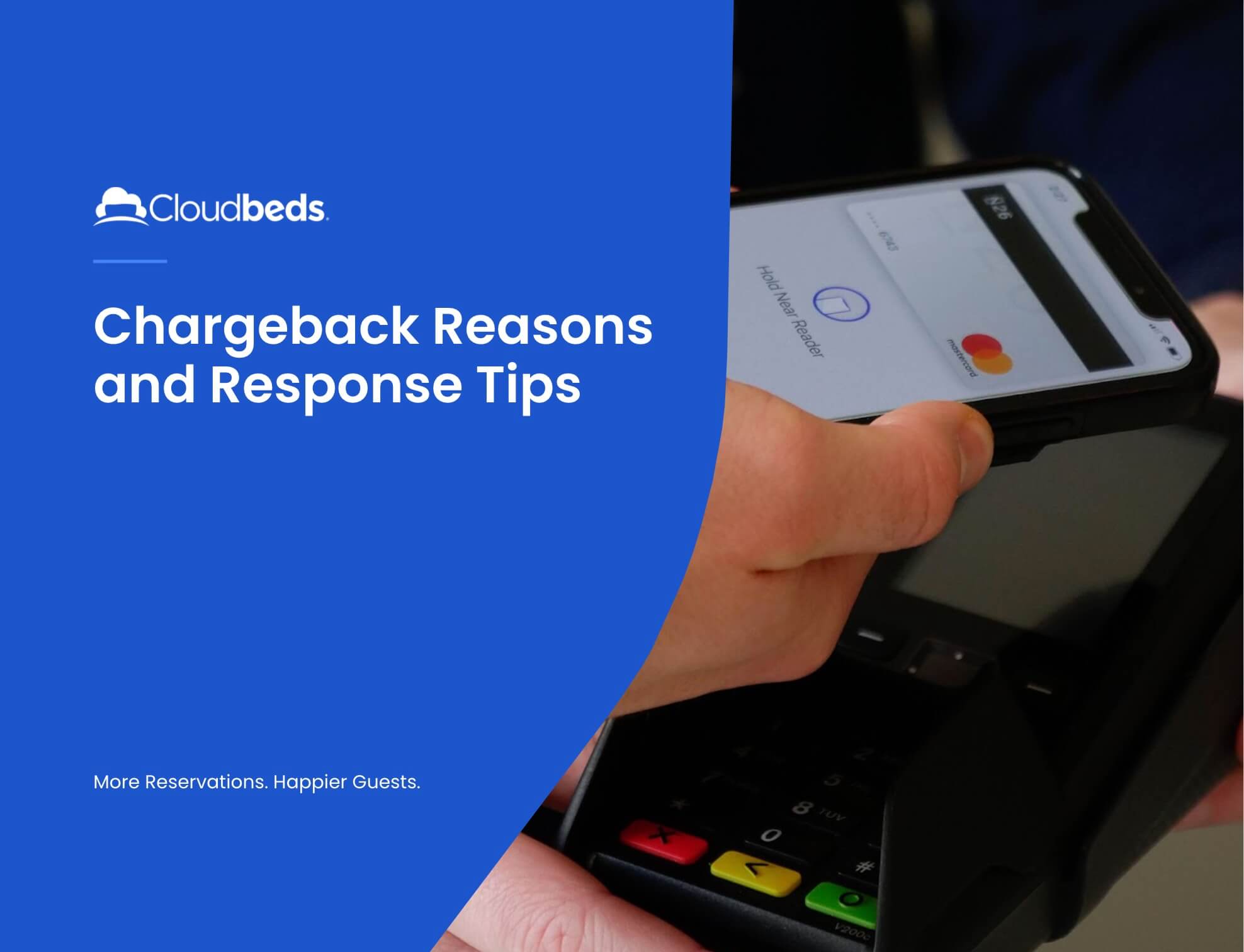
5 ways for hotels to reduce chargebacks
1. Collect cardholder information
By collecting information on your cardholders for each transaction, you can verify the data and protect your business. Train your staff to ask guests to present the credit card used to book the reservation and a photo ID during check-in. Verify the credit card information and guest name match the information in the folio.
Collect the billing address, zip code, and CVV (3-digit code on the back of Visa, MasterCard, and Discover cards or the 4-digit code on the front of Amex cards). Receiving a full match response will help to combat fraud and respond to a chargeback.
Instead of taking the information manually, it also helps protect your business by using a payment processing terminal to authorize customer deposits. In the case of an e-commerce transaction, use a compliant payment processor to protect your guest’s information when they make a booking online.
2. Clearly disclose policies on your website
To help protect your property, clearly list and disclose your cancellation, refund, and no-show policies on your website and throughout the booking process. A best practice is to have your guest check a box at booking, agreeing to your policies and conditions. Then once the guest has confirmed a reservation, remember to include the policies in the confirmation email sent to the guest.
In addition to your policies, Card Brands requires your property’s full contact information (address, phone number, and email address) to be listed on every website page. This ensures your guests can contact you with questions they might have.
3. Issue refunds when warranted
Remember: once you’ve received a chargeback, you can’t issue refunds. Therefore, if a customer requests a refund that is warranted, process it immediately. Doing so will prevent them from issuing a chargeback.
Also, remember to refund your guests in the same payment method used for the original sale. If a guest pays you with a credit card, issue a refund on that same card.
4. Keep clear documentation to respond to chargebacks
To prove that the guest authorized the transaction and stayed at your property, keep all sales receipts, correspondence between you and the guest, and other supporting documentation, including the signed registration card and the folio.
If the chargeback is in relation to your non-refund or cancellation policy, be sure your chargeback rebuttal to the card issuing bank includes documents to prove the policy was disclosed to the guest at booking and in their hotel reservation confirmation email.
5. Work with a payment processor that provides support for managing disputes
When a chargeback or retrieval inquiry occurs, many payment processors offer little support and guidance to help merchants understand and fight them.
Find a payment provider that offers support with chargeback management, specializes, and understands the common dispute scenarios in the hospitality industry gives you a much better outline of the steps to take to resolve the matter and avoid losing disputes.
Hotel payments made simple
To help you mitigate chargebacks and save time and money, Cloudbeds’ offers a secure, versatile payments solution that provides properties:
- Advanced SCA, PSD2, and 3DS credit card encryption that keeps your customers’ credit card data safe and secure under the PCI Compliance guidelines
- Access to Cloudbeds’ in-house support and dispute team, which provides support to help you resolve chargeback disputes and problems of all sizes.
- Contactless and secure payment processing with state-of-the-art terminals that capture cardholder info quickly, safely, and accurately – cutting down hours spent on reconciliation.
To protect you even further, Cloudbeds Payments sends hospitality-specific data directly to the bank, increasing fraud prevention and bettering your odds of getting a chargeback reversal.

